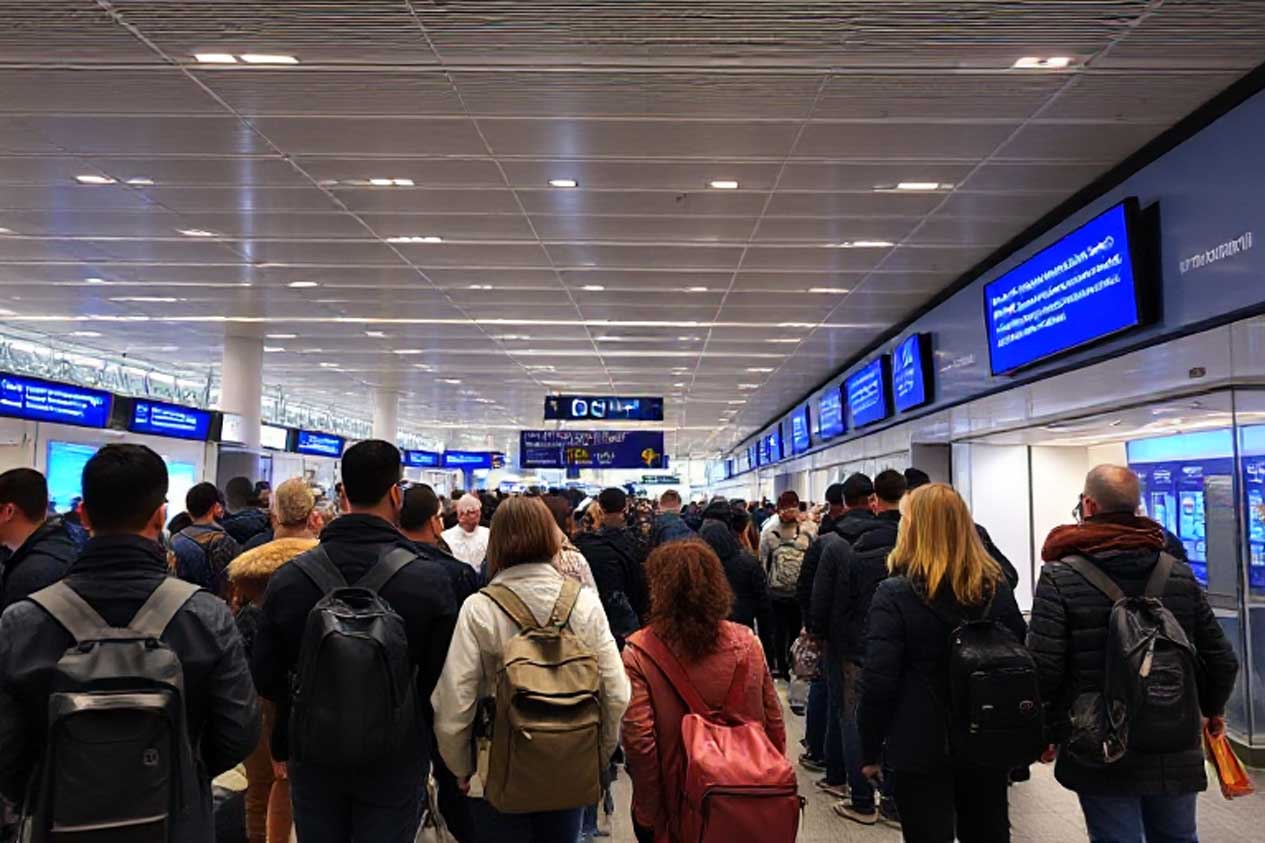Despite repeated warnings, issues with the UK eVisa system still exist. Two weeks after the Home Office switched to electronic visas, refugees now lack a means of proving their immigration status in the UK, and travellers are already experiencing problems boarding planes to the UK.
Despite repeated warnings, issues with the UK eVisa system still exist.
Two weeks after the UK’s switch to an electronic visa (eVisa) system, people are already experiencing difficulties proving their immigration status when returning to the country, despite the Home Office’s repeated warnings from migrant support groups and civil society that these problems would arise.
Millions of UK citizens’ immigration documents expired on December 31, 2024, when the Home Office replaced them with a real-time, online-only immigration status.
Paper documents have now been phased out, even though the department has been issuing eVisas for a number of years, including to EU citizens who applied to the EU Settlement Scheme (EUSS) following Brexit, those applying for skilled work visas, and Hong Kong citizens applying for the British National Overseas visa.
However, a story in The Independent claims that many people have already complained about problems returning to the UK, with passengers from countries like Germany, France, Malawi, Egypt, and Cyprus all having trouble proving their immigration status to airport officials.
Others in the UK have also reported problems, such as general practitioners’ refusal to accept share codes issued through their digital account with UK Visas and Immigration (UKVI), which individuals are expected to be able to use to demonstrate their immigration status when interacting with a variety of third parties, such as employers and rental agencies.
Supporting digital rights groups say the problems are also hurting refugees, who are apparently experiencing difficulties linking their passports to their online visa.
Because the Home Office has not sent them the required information, other refugees are similarly unable to create or use their UKVI accounts, which they require in order to open a bank account, apply for benefits, or rent housing.
Prior warnings
Civil society and migrant assistance groups have informed the Home Office about issues with the eVisa system on several occasions, notwithstanding the current difficulties.
The department’s eVisa policy team stated as early as December 2023 that it will not “compromise on the real-time aspect” of the e-Visa checks, even though these groups have directly suggested alternatives to the Home Office (like the use of QR codes or “stable token” systems), since “any check of an individual’s immigration status must be done in real time to reflect the current immigration status held” on its systems.
The Open Right Group stated, “As we warned, people are having problems using e-Visas to travel back to the UK.” “We requested that the Home Office implement the straightforward modification of permitting individuals to own a QR code. Instead of depending on an unreliable online-only system, this may be saved or printed.
It stated that a large number of refugees are still awaiting their e-Visas. They are unable to work, open a bank account, rent a home, or receive assistance without them. This mess needs to be cleaned up immediately by the Home Office.
According to the Home Office’s previous statement in the eVisa terms and conditions, the department “is already aware of the many technical issues with the eVisa scheme and is pre-emptively protecting itself against legitimate legal claims.” This statement includes “any information that is lost or corrupted while data is being transmitted, processed, or downloaded from the UKVI account,” as well as any other problems or disruptions that may occur while using a UKVI account.
According to ORG and others, the usage of eVisas should be viewed in light of the UK’s “hostile environment” strategy, which aims to make life as challenging as possible for those who choose to reside there.
Response from the Home Office
The Home Office responded regarding all of the story’s claims. “eVisas bring significant benefits,” a spokeswoman stated. They improve the security and effectiveness of the UK immigration system and, unlike physical documents, cannot be misplaced, stolen, or altered.
“To ensure the smooth roll-out of eVisas, we are closely collaborating with airlines and international stakeholders, and we are constantly listening to people’s concerns.”
In December 2024, Seema Malhotra, the minister of migration and citizenship, acknowledged “areas of concern” with the eVisa system in a written statement that the Home Office forwarded to Computer Weekly. The statement stated: “We have decided to allow carriers to accept a BRP or EUSS BRC expiring on or after 31 December 2024 as valid evidence of permission to travel until at least 31 March.”
She went on to say, “We acknowledge that a small number of customers have encountered problems with their eVisas, which we are working hard to resolve.” She also urged people who were having problems to get in touch with the Home Office.
When required, the Resolution Centre can facilitate the use of alternate methods to confirm an individual’s status,” Malhotra stated. “Clients can reach the Resolution Centre by phone or through an online webchat service.”
Additionally, she emphasised Assisted Digital, which is “a free service provided by UKVI to support digitally excluded customers in creating their accounts.” This service offers phone or in-person support to anyone who need help with IT-related components of the eVisa system.
Report problems with your eVisa


